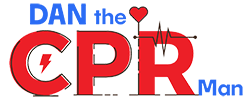How does an AED work?

Can I Learn CPR in Raleigh?

Cary, NC CPR
An AED (Automated External Defibrillator) is a portable medical device that is used to analyze and, if necessary, restore normal heart rhythm in the case of sudden cardiac arrest. Here’s how an AED works:
- Power On: When you turn on an AED, it provides clear voice or visual prompts to guide the user. Modern AEDs are designed to be user-friendly, and the instructions are typically easy to follow.
- Attach Electrode Pads: AEDs come with adhesive electrode pads that have sensors. You need to attach these pads to the person’s bare chest. The AED may have pictures or voice instructions showing you where to place the pads.
- Analyze Heart Rhythm: Once the electrode pads are attached, the AED will analyze the person’s heart rhythm. It does this by sending a small electrical current through the chest to detect the heart’s electrical activity.
- Determine if a Shock is Needed: Based on the analysis, the AED will determine whether a shock is needed. If the AED detects a shockable rhythm, like ventricular fibrillation (VF) or ventricular tachycardia (VT), it will prompt you to stand clear of the person and press a button to deliver a shock.
- Deliver the Shock: If a shock is advised, the AED will charge up and deliver an electrical shock through the electrode pads to the person’s chest. The shock is intended to “reset” the heart’s electrical activity, potentially allowing it to resume a normal rhythm.
- Resume CPR: After delivering a shock, the AED will instruct you to resume CPR with chest compressions and rescue breaths. This cycle may repeat until the person regains a normal heartbeat, or until professional medical help arrives.
AEDs are designed to be used by individuals without medical training, and they are equipped with safety features to ensure that shocks are only delivered when necessary. The prompt and timely use of an AED can significantly improve the chances of survival in cases of sudden cardiac arrest, making them a vital tool in emergency response.
Dan the CPR Man offers private and Professional Classes in the Raleigh, Durham, Cary area. We can teach a wide range of certification classes for both the individual, corporate or health care professional. To learn more visit www.danthecprman.com

